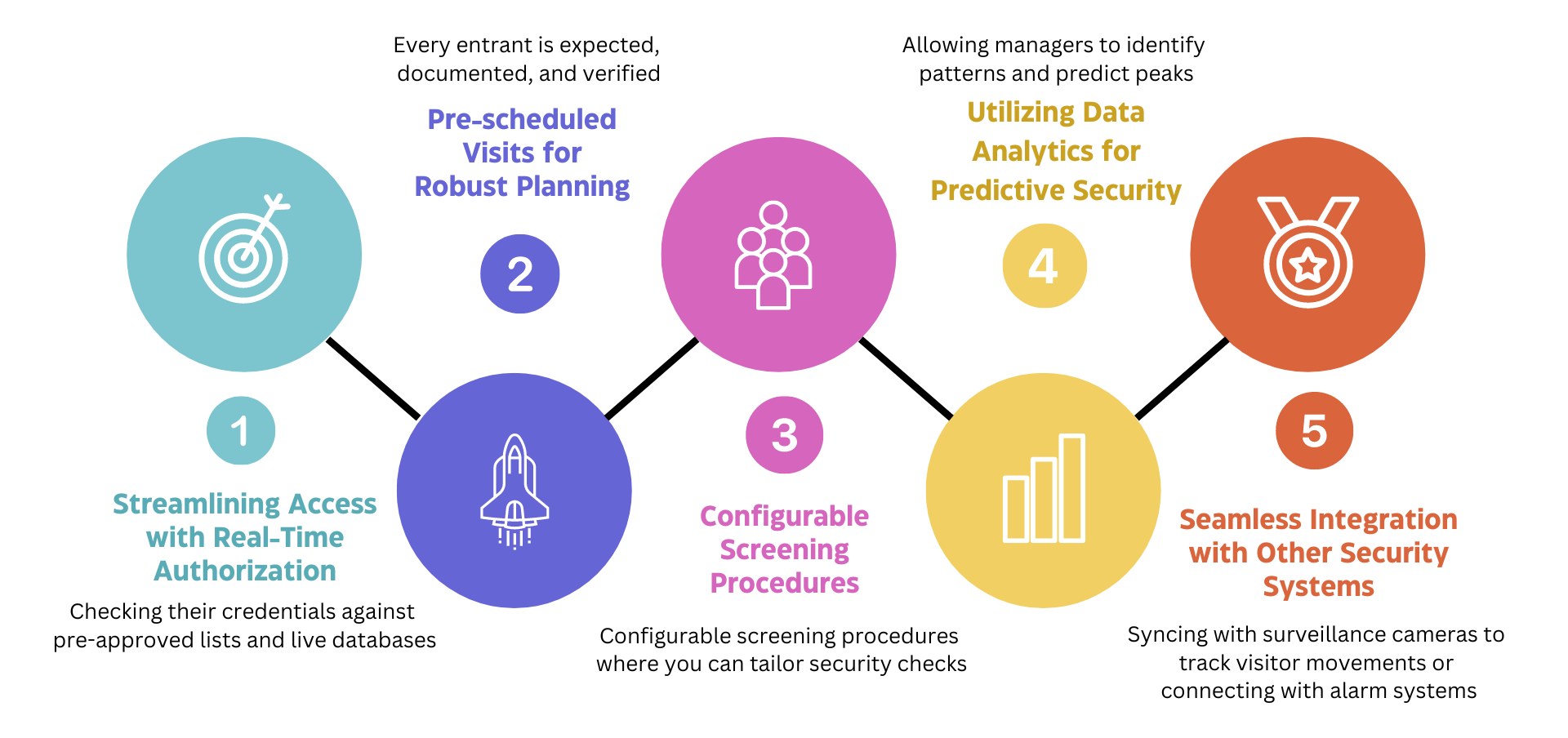
Accelerating Security Protocols: The Influence of Advanced Visitor Management Systems on Operational Safety

Explore the transformative influence of advanced visitor management systems on security operations in our in-depth analysis. From real-time authorization to predictive analytics, discover how systems like Splan are reshaping security protocols with innovation and efficiency.
1. Streamlining Access with Real-Time Authorization
In the realm of physical security, timing isn't just a luxury—it's a critical component that separates success from vulnerability. Advanced visitor management systems like Splan are revolutionizing this space by offering real-time authorization capabilities. Imagine a scenario: an unexpected guest arrives—by simply checking their credentials against pre-approved lists and live databases, Splan immediately grants or denies access. This streamlined approach minimizes bottlenecks at entry points, keeping foot traffic flowing smoothly without compromising on safety.
Beyond convenience, real-time authorization empowers security managers to adapt swiftly to dynamic threats. With immediate updates to access permissions, one can respond to incidents with the agility of a cat on hot bricks—evicting potential risks before they can even purr.
2. Pre-scheduled Visits for Robust Planning
Coordination is the backbone of robust security operations. By leveraging advanced visitor management systems like Splan to schedule visits in advance, you're essentially drawing a map before embarking on a treasure hunt. No more surprises—every entrant is expected, documented, and verified. This pre-planning enables security personnel to prepare for the exact volume of visitors, ensuring adequate staff and resources are prepared.
Moreover, embracing pre-scheduled visits means that security screening can start before a visitor has even stepped foot on the premises. It’s like solving a puzzle before it spills out of the box—an anticipatory move that keeps you two steps ahead of any mishaps.
3. Customizable Screening Procedures
Not all visitors pose the same level of risk, and recognizing this is key to efficient security management. Advanced systems like Splan offer configurable screening procedures where you can tailor security checks based on a variety of factors. Perhaps certain visitors require a deeper dive due to their destination within your facility, or maybe they're carrying items that need extra scrutiny.
This tailored approach not only enhances efficiency but also sends a clear message that security is not a cookie-cutter operation in your domain. It adapts like a chameleon to anything thrown its way—be that a VIP with sensitive meeting agendas or a delivery person laden with parcels.
4. Utilizing Data Analytics for Predictive Security
Data might just be the most underappreciated superhero in security operations. Advanced visitor management systems, including Splan, bring data analytics into the security fold, allowing managers to identify patterns and predict peaks in visitor flow. Harnessing this predictive power could transform how you allocate resources, potentially defusing situations before they escalate.
Visualize Imagine being able to forecast when you'll need extra hands-on deck because the system has spotted that Thursdays at 3 PM have been historically hectic. That’s the sort of insight that turns reactive strategies into proactive triumphs.
5. Seamless Integration with Other Security Systems
A well-oiled security machine is not a solitary sentinel—it's a networked force. Integrating your visitor management systems with other security systems creates an interconnected web of defense. Whether its integrating with WiFi systems or looking out through watchlists or sending notifications through emergency management systems, Splan acts as the conductor to your security orchestra.
The result? A harmonious symphony where every note is in place—each element of your security plan playing in sync, ready to pounce on discordance with the precision of a hawk.